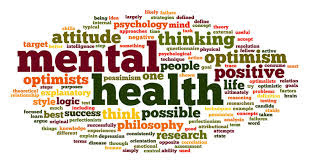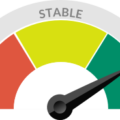What is Mental Illness?
A mental disorder, also called a mental illness or psychiatric disorder, is a behavioral or mental pattern that causes significant distress or impairment of personal functioning. Such features may be persistent, relapsing and remitting, or occur as a single episode. Mental health is the foundation for emotions, thinking, communication, learning, resilience and self-esteem. Mental health is also key to relationships, personal and emotional well-being and contributing to community or society.
Many people who have a mental illness do not want to talk about it. But mental illness is nothing to be ashamed of! It is a medical condition, just like heart disease or diabetes. And mental health conditions are treatable. We are continually expanding our understanding of how the human brain works, and treatments are available to help people successfully manage mental health conditions.
Mental illness does not discriminate; it can affect anyone regardless of your age, gender, geography, income, social status, race/ethnicity, religion/spirituality, sexual orientation, background or other aspect of cultural identity. While mental illness can occur at any age, three-fourths of all mental illness begins by age 24. Mental illnesses take many forms. Some are mild and only interfere in limited ways with daily life, such as certain phobias (abnormal fears). Other mental health conditions are so severe that a person may need care in a hospital.
The burden of mental disorders continues to grow with significant impacts on health and major social, human rights and economic consequences in all countries of the world. See: The Mental health Impact of Smartphone Addiction
Types of Mental Illness
Depression
Depression is a common mental disorder and one of the main causes of disability worldwide. Globally, an estimated 300 million people are affected by depression. More women are affected than men.
Depression is characterized by sadness, loss of interest or pleasure, feelings of guilt or low self-worth, disturbed sleep or appetite, tiredness, and poor concentration. People with depression may also have multiple physical complaints with no apparent physical cause. Depression can be long-lasting or recurrent, substantially impairing people’s ability to function at work or school and to cope with daily life. At its most severe, depression can lead to suicide.
Prevention programmes have been shown to reduce depression, both for children (e.g. through protection and psychological support following physical and sexual abuse) and adults (e.g. through psychosocial assistance after disasters and conflicts).
There are also effective treatments. Mild to moderate depression can be effectively treated with talking therapies, such as cognitive behaviour therapy or psychotherapy. Antidepressants can be an effective form of treatment for moderate to severe depression but are not the first line of treatment for cases of mild depression. They should not be used for treating depression in children and are not the first line of treatment in adolescents, among whom they should be used with caution.
Management of depression should include psychosocial aspects, including identifying stress factors, such as financial problems, difficulties at work or physical or mental abuse, and sources of support, such as family members and friends. The maintenance or reactivation of social networks and social activities is important.
Bipolar affective disorder
This disorder affects about 60 million people worldwide. It typically consists of both manic and depressive episodes separated by periods of normal mood. Manic episodes involve elevated or irritable mood, over-activity, pressure of speech, inflated self-esteem and a decreased need for sleep. People who have manic attacks but do not experience depressive episodes are also classified as having bipolar disorder. Effective treatments are available for the treatment of the acute phase of bipolar disorder and the prevention of relapse. These are medicines that stabilize mood. Psychosocial support is an important component of treatment. See : Online Bipolar Test
Schizophrenia and other psychoses
Schizophrenia is a severe mental disorder, affecting about 23 million people worldwide. Psychoses, including schizophrenia, are characterized by distortions in thinking, perception, emotions, language, sense of self and behaviour. Common psychotic experiences include hallucinations (hearing, seeing or feeling things that are not there) and delusions (fixed false beliefs or suspicions that are firmly held even when there is evidence to the contrary). The disorder can make it difficult for people affected to work or study normally.
Stigma and discrimination can result in a lack of access to health and social services. Furthermore, people with psychosis are at high risk of exposure to human rights violations, such as long-term confinement in institutions.
Schizophrenia typically begins in late adolescence or early adulthood. Treatment with medicines and psychosocial support is effective. With appropriate treatment and social support, affected people can lead a productive life, be integrated in society. Facilitation of assisted living, supported housing and supported employment can act as a base from which people with severe mental disorders, including Schizophrenia, can achieve numerous recovery goals as they often face difficulty in obtaining or retaining normal employment or housing opportunities.
Dementia
Worldwide, approximately 50 million people have dementia. Dementia is usually of a chronic or progressive nature in which there is deterioration in cognitive function (i.e. the ability to process thought) beyond what might be expected from normal ageing. It affects memory, thinking, orientation, comprehension, calculation, learning capacity, language, and judgement. The impairment in cognitive function is commonly accompanied, and occasionally preceded, by deterioration in emotional control, social behaviour, or motivation.
Dementia is caused by a variety of diseases and injuries that affect the brain, such as Alzheimer’s disease or stroke. Though there is no treatment currently available to cure dementia or to alter its progressive course, many treatments are in various stages of clinical trials. Much can be done, however, to support and improve the lives of people with dementia and their careers and families.
Developmental disorders, including autism
Developmental disorder is an umbrella term covering intellectual disability and pervasive developmental disorders including autism. Developmental disorders usually have a childhood onset but tend to persist into adulthood, causing impairment or delay in functions related to the central nervous system maturation. They generally follow a steady course rather than the periods of remissions and relapses that characterize many other mental disorders.
Intellectual disability is characterized by impairment of skills across multiple developmental area such as cognitive functioning and adaptive behaviour. Lower intelligence diminishes the ability to adapt to the daily demands of life. Symptoms of pervasive developmental disorders, such as autism, include impaired social behaviour, communication and language, and a narrow range of interests and activities that are both unique to the individual and are carried out repetitively. Developmental disorders often originate in infancy or early childhood. People with these disorders occasionally display some degree of intellectual disability.
Family involvement in care of people with developmental disorders is very important. Knowing what causes affected people both distress and wellbeing is an important element of care, as is finding out what environments are most conductive to better learning. Structure to daily routines help prevent unnecessary stress, with regular times for eating, playing, learning, being with others, and sleeping. Regular follow up by health services of both children and adults with developmental disorders, and their carers, needs to be in place. The community at large has a role to play in respecting the rights and needs of people with disabilities.
Who is at risk from mental disorders?
Determinants of mental health and mental disorders include not only individual attributes such as the ability to manage one’s thoughts, emotions, behaviors and interactions with others, but also social, cultural, economic, political and environmental factors such as national policies, social protection, standards of living, working conditions, and community support. Stress, genetics, nutrition, perinatal infections and exposure to environmental hazards are also contributing factors to mental disorders.
Signs and Symptoms of Mental Illness
The following are signs that your loved one may want to speak to a medical or mental health professional at a psychiatric clinic .It is especially important to pay attention to sudden changes in thoughts and behaviors. Also keep in mind that the onset of several of the symptoms below, and not just any one change, indicates a problem that should be assessed. The symptoms below should not be due to recent substance use or another medical condition.
In Adults, Young Adults And Adolescents:
- Confused thinking
- Prolonged depression (sadness or irritability)
- Feelings of extreme highs and lows
- Excessive fears, worries and anxieties
- Social withdrawal
- Dramatic changes in eating or sleeping habits
- Strong feelings of anger
- Strange thoughts (delusions)
- Seeing or hearing things that aren’t there (hallucinations)
- Growing inability to cope with daily problems and activities
- Suicidal thoughts
- Numerous unexplained physical ailments
- Substance use
In Older Children And Pre-Adolescents:
- Substance use
- Inability to cope with problems and daily activities
- Changes in sleeping and/or eating habits
- Excessive complaints of physical ailments
- Changes in ability to manage responsibilities – at home and/or at school
- Defiance of authority, truancy, theft, and/or vandalism
- Intense fear
- Prolonged negative mood, often accompanied by poor appetite or thoughts of death
- Frequent outbursts of anger
- In Younger Children:
- Changes in school performance
- Poor grades despite strong efforts
- Changes in sleeping and/or eating habits
- Excessive worry or anxiety (i.e. refusing to go to bed or school)
- Hyperactivity
- Persistent nightmares
- Persistent disobedience or aggression
- Frequent temper tantrums
How To Cope With Mental Illness On A Day To Day Basis
Accept Your Feelings
Despite the different symptoms and types of mental illnesses, many families who have a loved one with mental illness, share similar experiences. You may find yourself denying the warning signs, worrying what other people will think because of the stigma, or wondering what caused your loved one to become ill. Accept that these feelings are normal and common among families going through similar situations. Find out all you can about your loved one’s condition by reading and talking with mental health professionals. Share what you have learned with others.
Handling Unusual Behavior
The outward signs of a mental illness are often behavioral. A person may be extremely quiet or withdrawn. Conversely, they may burst into tears, have great anxiety or have outbursts of anger.
Even after treatment has started, some individuals with a mental illness can exhibit anti-social behaviors. When in public, these behaviors can be disruptive and difficult to accept. The next time you and your family member visit your doctor or mental health professional, discuss these behaviors and develop a strategy for coping.
The individual’s behavior may be as dismaying to them as it is to you. Ask questions, listen with an open mind and be there to support them.
Establishing A Support Network
Whenever possible, seek support from friends and family members. If you feel you cannot discuss your situation with friends or other family members, find a self-help or support group. These groups provide an opportunity for you to talk to other people who are experiencing the same type of problems. They can listen and offer valuable advice.
Seeking Counseling
Therapy can be beneficial for both the individual with mental illness and other family members. A mental health professional can suggest ways to cope and better understand your loved one’s illness.
When looking for a therapist, be patient and talk to a few professionals so you can choose the person that is right for you and your family. It may take time until you are comfortable, but in the long run you will be glad you sought help.
Taking Time Out
It is common for the person with the mental illness to become the focus of family life. When this happens, other members of the family may feel ignored or resentful. Some may find it difficult to pursue their own interests.
If you are the care giver, you need some time for yourself. Schedule time away to prevent becoming frustrated or angry. If you schedule time for yourself it will help you to keep things in perspective and you may have more patience and compassion for coping or helping your loved one. Being physically and emotionally healthy helps you to help others.
“Many families who have a loved one with mental illness share similar experiences”
It is important to remember that there is hope for recovery and that with treatment many people with mental illness return to a productive and fulfilling life.






